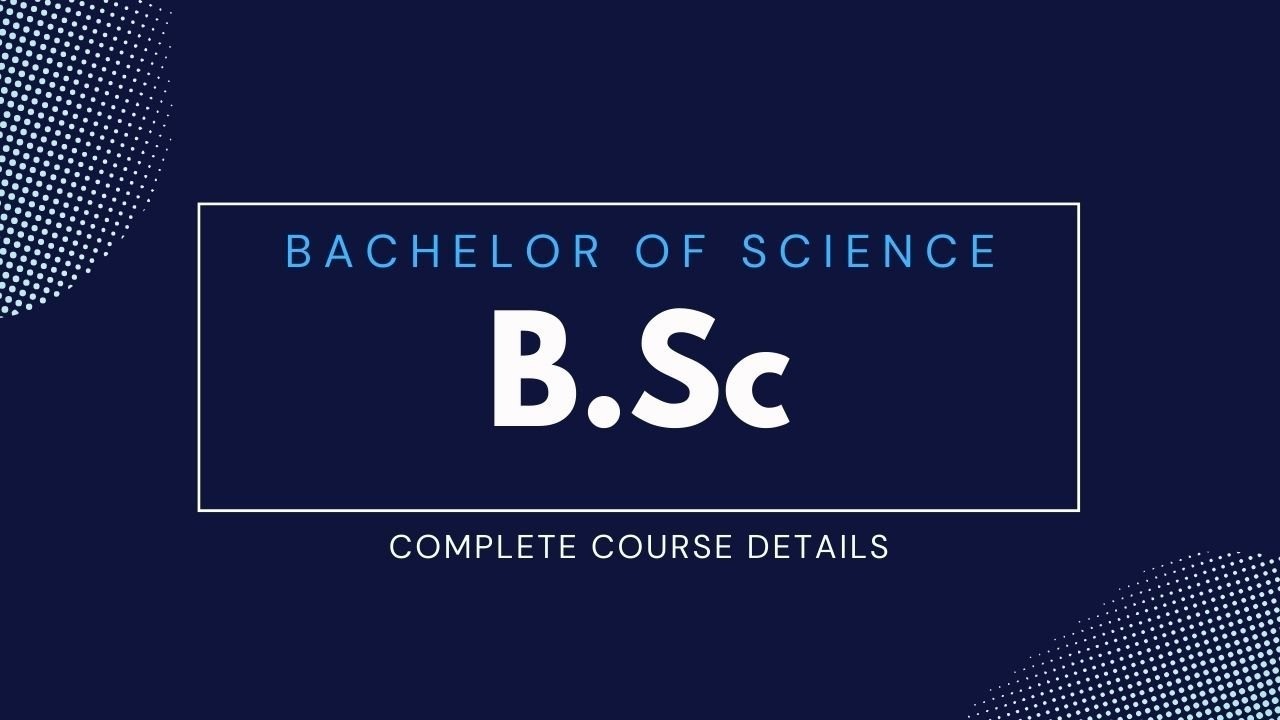BSc Full Form: What It Means and Why It Matters
Figuring out what to study after high school can be confusing. If you’re thinking about science and technology, you’ve probably heard of the term “BSc.” But what does it really mean, and why is it important? In this article, we’ll explore the BSc Full Form, the opportunities it offers, and why so many students choose this degree.
1. What Does BSc Full Form Mean?
BSc stands for “Bachelor of Science.” It’s a type of undergraduate degree you can earn after finishing a course focused on science or technology subjects. Usually, it takes three to four years to complete, depending on the country and the specific program. This degree gives students a strong foundation in different science fields like biology, physics, chemistry, or computer science.
The BSc Full Form may sound simple, but the degree can be the first step towards a variety of exciting careers or further studies. So, if you are passionate about science and want to dig deeper into how things work in the world, a BSc might be the right choice for you.
2. Why a BSc Degree Is Important
Science plays a major role in our everyday lives, and the demand for skilled science graduates is always rising. Here are some reasons why getting a BSc degree is a smart move:
- Wide Career Options: With a BSc, you are not tied to one specific job. You can explore many fields like healthcare, technology, and environmental work.
- Useful Skills: The degree helps you develop important skills like analyzing data, problem-solving, and understanding how science works in real life.
- Higher Education: If you plan to continue studying, a BSc gives you a strong academic background for pursuing a master’s or even a Ph.D. later on.
In a world driven by technology and innovation, having a science background can open up plenty of opportunities. A BSc prepares you to face challenges and come up with smart solutions that can impact the future.
3. What Can You Study in a BSc Program?
BSc courses come in many different subjects, and you can choose what excites you most. Here are some popular options:
a. Biological Sciences
This is all about studying living things, like plants, animals, and humans. If you’re fascinated by how life works, subjects like microbiology, genetics, or zoology might interest you. You’ll get to do hands-on lab work and even field research.
b. Physical Sciences
If you enjoy subjects like physics or chemistry, physical sciences are a great fit. You’ll learn about the laws of nature and how everything in the universe works. People who are strong in math and love experimenting usually enjoy this stream.
c. Computer Science
We live in a digital world, and studying computer science can set you up for a rewarding career in tech. This BSc program covers programming, data analysis, and software development. With the rise of artificial intelligence and cybersecurity, jobs in this field are booming.
d. Environmental Science
If you’re passionate about saving the planet, a BSc in Environmental Science can be your ticket to a meaningful career. You’ll study things like climate change, conservation, and sustainable living to help protect our Earth.
e. Psychology
This is the science of understanding how people think and behave. If you’re curious about why humans act the way they do, a BSc in Psychology could lead to roles in counseling, mental health, or even research.
4. Benefits of Getting a BSc Degree
Now that we know the BSc Full Form and the kinds of subjects you can study, let’s talk about the benefits of choosing this path:
a. Hands-On Experience
BSc programs often include lab work and practical exercises. Instead of just reading textbooks, you get to do experiments and learn how science applies to the real world. This experience is valuable for future jobs or even starting your own research projects.
b. Problem-Solving Skills
Studying science teaches you how to think logically and solve problems. Employers love people who can analyze information, come up with smart ideas, and figure things out when challenges arise.
c. Lots of Career Paths
A BSc degree doesn’t box you into one career. Depending on your interests, you can work in healthcare, tech, research, or even business. The options are almost endless, and you can pick a path that suits your passions and strengths.
d. Foundation for Further Studies
Many students use their BSc degree as a stepping stone to pursue higher education. If you dream of becoming a doctor, a scientist, or a professor, starting with a BSc is the way to go.
5. What to Expect in a BSc Program
Choosing a BSc degree means you’re ready for an exciting but challenging academic journey. Here’s what you can expect:
a. Course Layout
BSc programs mix core science subjects with electives. For example, a BSc in Biology might include courses on cell biology, genetics, and ecology. You may also get to choose some elective subjects to personalize your learning.
b. Exams and Projects
You’ll have regular exams, quizzes, and assignments to test your knowledge. Projects and lab work are essential, and you’ll need to show you understand how to apply what you learn. Be ready for some hard work, but also for the rewarding feeling of mastering new concepts.
c. Internships and Fieldwork
Many BSc courses give you the chance to do internships or field studies. These experiences let you see what working in your chosen field is like and can help you decide what kind of career you want.
6. How to Choose the Right BSc Program
Picking the right BSc program can feel overwhelming because there are so many options. Here’s how to make a smart choice:
a. Think About What You Like
Start by thinking about your favorite subjects. Do you love exploring the mysteries of space or understanding how the human mind works? Your interests can help guide you to the right program.
b. Research Job Opportunities
Once you have a few ideas, research the career prospects in those fields. What kinds of jobs can you get? Are they in high demand? Understanding the job market can help you make a wise choice.
c. Plan for the Future
If you want to keep studying after your BSc, choose a program that aligns with your long-term goals. For example, if you’re interested in medicine, a BSc in Biology or Biochemistry would be a good starting point.
d. Talk to People in the Field
Try to connect with professionals or even professors to get an idea of what a career in that field is like. Their experiences can offer valuable insight and help you decide if a BSc in that area is the right fit.
7. Career Options After a BSc Degree
One of the best parts about earning a BSc is the variety of careers you can choose from. Here are some examples:
a. Healthcare and Medicine
If you studied biology or a related field, you could work in hospitals, research labs, or pharmaceutical companies. Roles like lab technician, medical researcher, or healthcare consultant are common.
b. Technology and IT
With a BSc in Computer Science, you can dive into roles like software developer, data analyst, or cybersecurity expert. The tech industry is growing fast and needs people who can keep up with new technology.
c. Environmental Science
Love nature? Work as an environmental scientist or a conservation officer. Help tackle problems like pollution or protect endangered species by working with governments or private organizations.
d. Education and Teaching
If you enjoy sharing knowledge, you can become a science teacher or a lecturer. Teaching can be a fulfilling way to make a difference and inspire the next generation of scientists.
8. BSc: A Degree That Shapes You
The BSc Full Form might be simple, but earning this degree is a transformative experience. It’s not just about the subjects you study; it’s about growing as a person. BSc students learn how to manage their time, work in teams, and think independently.
a. Personal Growth
University life brings many new experiences. You learn how to live on your own, handle stress, and balance studies with social life. These experiences prepare you for the real world.
b. Building a Network
During your studies, you’ll meet people who share your interests. These connections can become future colleagues or even close friends. Networking with classmates and professors can also open doors to new opportunities.
9. Conclusion: Is a BSc Degree the Right Choice?
The BSc Full Form, “Bachelor of Science,” might seem straightforward, but the impact of the degree is anything but simple. It can set you on a path to exciting careers or open up possibilities for higher education. If you’re passionate about science and eager to learn, a BSc degree could be your ticket to a bright future.
Think carefully about your interests, research the options available, and don’t be afraid to ask for advice. Whether you dream of working in a tech company, a hospital, or out in the field saving the environment, a BSc degree gives you the foundation to start building that dream.
FAQs
1. What is the BSc Full Form?
The BSc Full Form stands for “Bachelor of Science.” It is an undergraduate degree focused on science-related subjects like biology, physics, chemistry, or computer science.
2. How long does it take to complete a BSc degree?
Usually, a BSc degree takes three to four years to complete, depending on the country and the program you choose.
3. What career options are available after a BSc?
A BSc degree offers a wide range of career options, including roles in healthcare, technology, education, environmental science, and research.
4. Can I pursue higher studies after a BSc degree?
Yes, many students use their BSc as a foundation for further studies, like a master’s or a Ph.D., to specialize in their chosen field.
5. Why is a BSc degree important?
A BSc degree is important because it provides in-depth scientific knowledge, hands-on experience, and essential problem-solving skills. It opens up various career opportunities and can be the first step toward higher education.














Post Comment